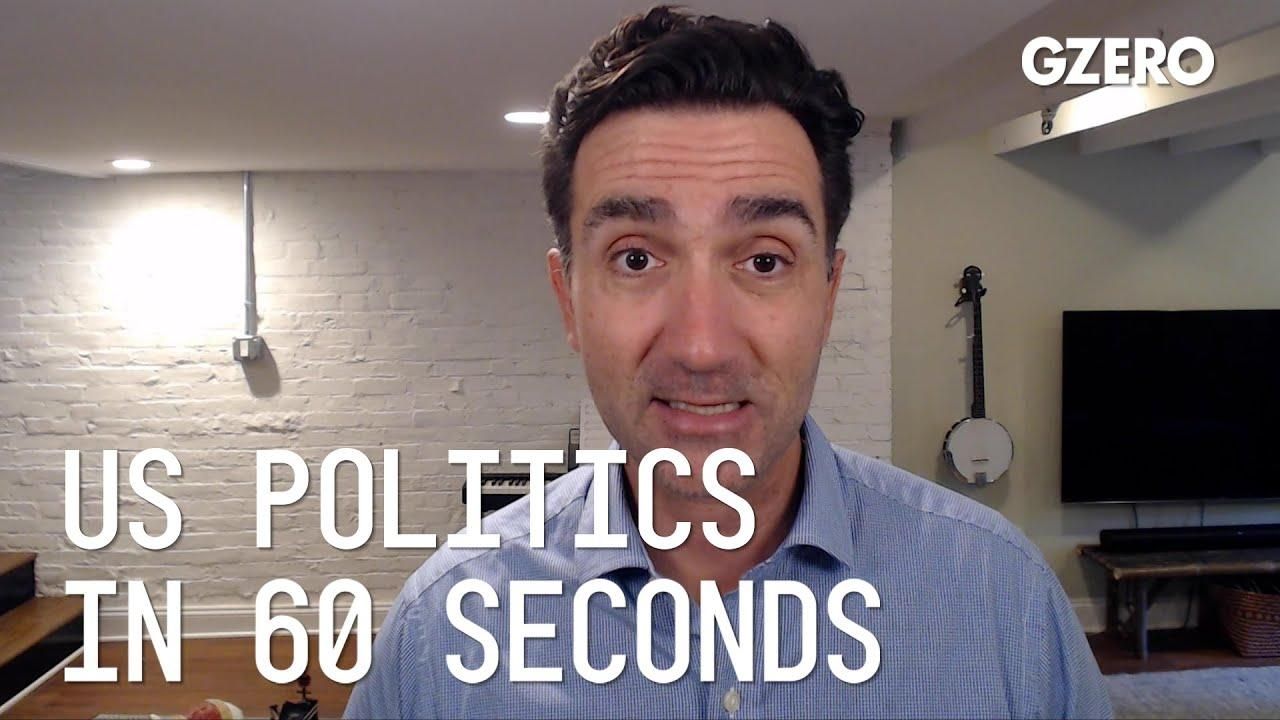US Politics In 60 Seconds
Reading the US midterm election tea leaves

Reading the US Midterm Election Tea Leaves | US Politics In :60 | GZERO Media

Jon Lieber, head of Eurasia Group's coverage of political and policy developments in Washington, DC shares his perspective on US politics.
What is polling telling us three weeks before the midterm elections?
Public opinion polling is taking election watchers on quite an exciting ride this year, from showing Republicans with a massive advantage early in the year, to demonstrating a surge and support for Democrats over the summer. Most election watchers think that surge is fading now in the final weeks before the election. But today, we wanted to focus on a few numbers that matter for forecasting the election results.
But first is the generic congressional ballot, which asks voters which party they would prefer to vote for in an upcoming election. If you have to look at one indicator to make a forecast about congressional elections in the US, this is it. Particularly in the House of Representatives. This indicator has shown Republicans with an unusual advantage for most of this year, which they lost over the summer as abortion climbed in importance for voters. While Democrats lead in this indicator right now by about half a percentage point, because of the way districts are drawn, they would need to have a several-point lead in order to be thought of as favorites in taking the House. So this is telling us that the general environment is good for Republicans at the moment.
The second data point to watch is presidential approval. This is far more important in presidential elections than midterm elections, but it does give an indicator of how voters feel about the party in power. In this case, the Democrats. Biden's approval has trended steadily downwards since his inauguration, going from a high of 54% in January of last year, to a low of 37% in July of this year. But he's staged a bit of a comeback as energy price increases reversed over the summer. Biden currently sits at about 43% if you average together different polls, which is almost exactly where President Trump was before he faced a major setback in his first midterm election, and about four points behind where President Obama was just before the Tea Party wave that cost Democrats control of the House in 2010. So this suggests an advantage for Republicans, to the extent this election is a referendum on Biden.
Then the final thing you want to look at is issue polling. And what's interesting about this election cycle is that Republicans and Democrats are saying they prioritize very different things. Republicans are saying that inflation, crime, and immigration, are their top concerns. And coincidentally, those are all areas where polls indicate that voters trust Republicans more than Democrats to handle these issues. And at the same time, Democrats are telling pollsters that healthcare, abortion, and gun policy, are top issues in this election, and Democrats tend to have a lead in who would handle those issues better. So this is really a mixed picture of who has the advantage in the national environment.
But perhaps most importantly, the top issue for independent voters is the economy and inflation, where Republicans have the overall advantage. So if this were a national referendum, the data tells us that you'd have to favor the Republicans, but of course, it isn't. And while control of the House is affected by national trends, the Senate tends to be much more idiosyncratic, and the outcomes will vary on candidate quality. And of course, we have to be cautious when looking at polls given the sizable misses in catching Republican voters in the last several election cycles.
How widely is AI actually being used, and where is adoption falling behind? Speaking at the 2026 World Economic Forum in Davos, Brad Smith, Vice Chair and President of Microsoft, outlined how AI adoption can be measured through what he calls a “diffusion index.”
AI adoption is accelerating worldwide, but “diffusion” isn’t just about who has the best models. It’s about who has the basics: affordable power, reliable connectivity, and the skills to actually use AI. In a new GZERO Media Global Stage livestream from the 2026 World Economic Forum in Davos, Switzerland, CNN’s Richard Quest moderates a clear-eyed discussion on what it will take to broaden AI access, and what happens if the gap widens.
Now that we are all on same page. #PUPPETREGIME